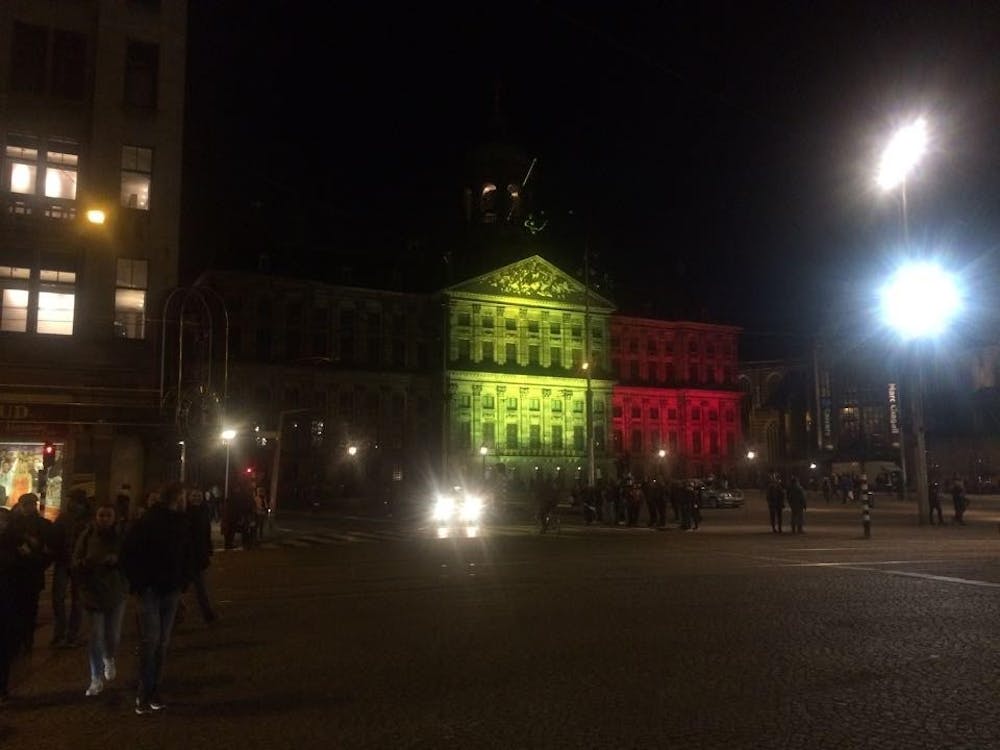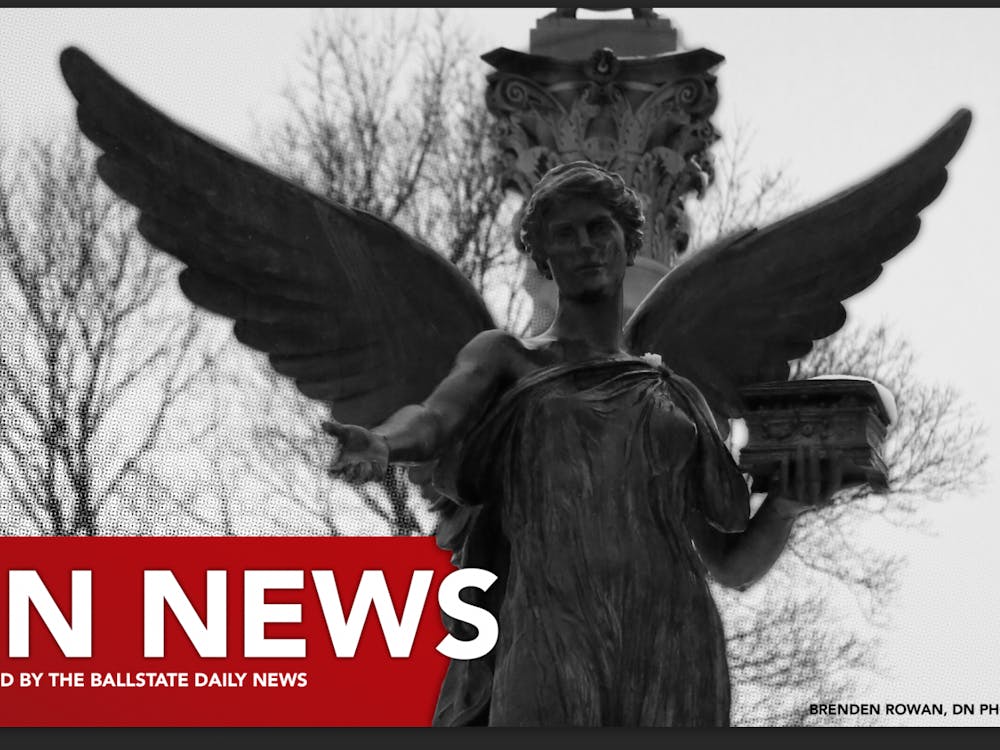Email from the Rinker Center:
"Dear students, faculty, family and friends,
We are saddened be the events that took place in Brussels, and our thoughts are with the victims and their families. While we have no students studying in Belgium, the Rinker Center for International Programs has reached out to our students studying throughout Europe to confirm their safety, and we also have asked them to contact their loved ones at home to provide reassurance. We will update as additional information is received.
The Study Abroad Office continues to monitor events in Belgium, and around the globe, on a daily basis. We are working closely with our overseas partners, the Department of State, and our health care providers to remain vigilant and determine how we can best keep our students safe.
Based on the information we have received from our overseas contacts, at this time we have not made any changes to our program options. Should events occur that require changes, we will work with students and their families to determine how best we can work together to assist them.
Please know that students safety and security is our number-one concern, and we will continue to have discussions with our overseas partners to best mitigate risk to all Ball State students."
Becky Cooper and Tayler Pennington, both sophomore business majors, woke up in their Amsterdam hostel on March 22 ready to head out to Brussels, Belgium.
The two are studying abroad in Salzburg, Austria, and were jumping through Western Europe on a small escapade, taking a break from their studies. They had plans to take the train to Brussels, which is just a three-hour train ride from their hostel. From there, they would move on to Paris and later head into Germany.
They had planned on taking their time, eating breakfast and then making their way to the train station, Pennington said.
“But in the morning, as we were talking with the boys in our hostel, ... they said we wouldn’t be going into Belgium anytime soon — there had been a bombing at the airport," she said.
Three attacks on a metro train and at an airport in Brussels on March 22 killed at least 34 people and wounded about 170 more, according to Belgian media. ISIS claimed responsibility for those attacks, declaring them retaliation for France's participation in airstrikes against the terror group in Syria and Iraq.
Pennington said she was shocked when she heard what had happened; neither she nor Cooper had checked the news yet for the day.
"I was frightened, to be quite honest, because our original plan could have had us going to Brussels earlier," Pennington said. "I was also thankful that luck was on our side. It was strange being so close to the country where it happened, and it was kind of hard to comprehend. I was shaking a little but trying to stay calm so we could figure out our next move."
Cooper said she doubted the terrorists would target Amsterdam, but with the Netherlands and Belgium sharing a border, she still wasn't sure about what could happen.
"When I first found out, I was extremely worried,” Cooper said. "Being in Europe when attacks happen is so much different than being an ocean away in America."
The girls were also concerned about friends from their study abroad program — including fellow Indiana native and University of Alabama student George Peyton, who was on a plane to Brussels while the attacks were taking place.
Scheduled to arrive at a nearby Belgian airport at 9 a.m., Peyton said he had no idea that anything had happened, even an hour after the attacks took place.
"We were dropped off at one of the metro stations that was shut down," Peyton said. "We didn't know it at the time, but when we tried to enter, plain-clothed police surrounded us and told us we have to leave. We then walked to a cafe and sat down to get Wi-fi and maps, and that’s when we saw the news videos and saw it all over the Internet.”
Peyton said the locals seemed “unfazed” by the events — a sentiment Cooper and Pennington also recall experiencing in Amsterdam and Frankfurt. People were casual, and one local even apologized to the American students for “choosing this day to visit,” Peyton said.
"I could see police vans full of officers and soldiers racing up and down the streets," Peyton said. "My friends were very on edge, but once we saw so many cops and knew why they were around, I felt safe."
After finding out about the attacks, Peyton and the three other students he was with headed straight for the American Embassy, which was surrounded by fully-armed Belgian soldiers. He said the security officers offered to let them into the embassy if they felt scared, and gave them directions for what to do.
Belgian emergency services were on top of the situation, Peyton said, and there was never a time when he felt his life was in danger — mainly because he’s a firm believer in the saying "the only thing we have to fear is fear itself.”
"All in all, I felt very safe with all that was happening,” Peyton said. “I’m also grateful that my friends were thinking about me, and I’m really looking forward to meeting back up with them."
After the attacks, Pennington said the Rinker Center reached out to both her and Cooper, as did their program coordinators and their parents.
“This has definitely impacted my study abroad,” Pennington said. "My parents don't want me to go anywhere questionable at this point, and I think it will be a hard balance to find now, as we don't want to put ourselves in danger, but we also can't live our lives in fear or else we wouldn't do anything."
Although both are safe, Cooper and Pennington agreed that the experience has had an unforeseen effect on their studies overseas.
"It makes you think twice about where you should go,” Pennington said. “And it makes you thankful for the safety you do have.”
|
Both girls are keeping blogs: https://beckycooperblogs.wordpress... https://taylerbpenn.wordpress.com/2... Official statement from Rinker Center (March 22 in evening): "Dear students, faculty, family and friends, We are saddened be the events that took place in Brussels, and our thoughts are with the victims and their families. While we have no students studying in Belgium, the Rinker Center for International Programs has reached out to our students studying throughout Europe to confirm their safety, and we also have asked them to contact their loved ones at home to provide reassurance. We will update as additional information is received. The Study Abroad Office continues to monitor events in Belgium, and around the globe, on a daily basis. We are working closely with our overseas partners, the Department of State, and our health care providers to remain vigilant and determine how we can best keep our students safe. Based on the information we have received from our overseas contacts, at this time we have not made any changes to our program options. Should events occur that require changes, we will work with students and their families to determine how best we can work together to assist them. Please know that students safety and security is our number-one concern, and we will continue to have discussions with our overseas partners to best mitigate risk to all Ball State students." |





